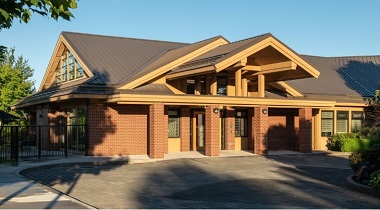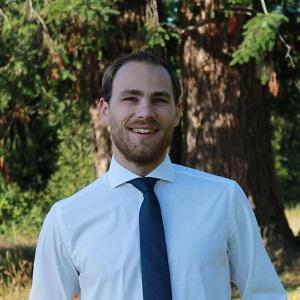
The Irene Thomas Hospice is operated by the Delta Hospice Society.
Last month, Fraser Health followed through on an ultimatum to the Delta Hospice Society: provide Medical Assistance in Dying (MAiD) or lose funding.
The Delta Hospice Society refused to compromise their principles that palliative care “intends neither to hasten or postpone death.”
This definition of palliative care is not specially crafted by the Delta Hospice Society; it is part of the World Health Organization’s definition of palliative care.
The health authority will withdraw $1.5 million of funding, equivalent to 94 percent of the operating budget of the hospice and may even take over the hospice building itself starting in February of 2021. This timeline gives the Delta Hospice Society 365 days before the society finds itself without a hospice location and without any public funding.
Not only is this a loss for the Delta Hospice Society and its patients, but this is a loss for all British Columbians.
Here’s why.
The Delta Hospice Society is a non-profit, charitable organization that began caring for British Columbians suffering from life-threatening or advanced diseases in 1991. According to its website, the hospice relies on over 100 specially trained volunteers in addition to paid staff to care for patients. Since its inception, the hospice society has fundraised over $8.5 million to cover capital and operating expenses.
The story of the Delta Hospice Society is the story of private citizens who want to give back to their community by caring for their neighbours. Over the course of almost 30 years, hundreds of people have donated time and/or money to the hospice. In 2007, Fraser Health and the provincial government partnered with the hospice, recognizing the excellent work it was already doing and assisting the hospice to build and operate a new 10-bed facility.
This illustrates Canadian society at its finest; people from all walks of life coming together to help care for their fellow citizens, with those actions supported by local governments.
Fraser Health’s withdrawal of funding shatters this model of cooperation. Instead of enabling a compassionate citizenry to take initiative to care for their neighbours, Fraser Health is squashing this personal initiative.
What is happening with the Delta Hospice Society is symptomatic of a greater problem in Canadian society: an abdication – or, worse yet, a usurpation – of personal responsibility in favour of public responsibility.
Scarcely a century ago, individual citizens, churches and civic institutions took responsibility to care for their poverty-stricken neighbours, to stitch up the wounds of their countrymen, to support family members and to educate their own children.
Fast forward to today. Public sector institutions and programs are increasingly crowding out the private, non-profit (and for-profit) institutions that we collectively call civil society. In healthcare, education and poverty alleviation, the public sector has virtually taken over these social programs.
But at what cost do we remove that personal sense of responsibility? Over the past several decades, charitable giving and volunteerism have gone down. Social isolation is up. Private groups of citizens who dare to set up their own associations that follow their own philosophical or religious convictions may face prosecution, lose existing funding, have to abandon their beliefs or have to sign a values attestation.
By taking responsibility for everything, the state leaves individual Canadians with responsibility for nothing.
This is one reason why Fraser Health’s treatment of the Delta Hospice Society is so important, and so wrong. Not only does it ignore the conscientious rights of citizens to find MAiD immoral, but it also destroys the efforts of private individuals to contribute to a better society by taking personal action.
If society shrugs off this decision by Fraser Health, what non-profit initiatives will the provincial government target next? Advocacy organizations? Independent schools? Soup kitchens? Religious organizations?

Levi Minderhoud
Persons who run or volunteer for such organizations – or for any non-profit organization – beware. This decision by Fraser Health reveals the provincial government’s growing attitude to these civil institutions: forfeit your conscience or forfeit your existence.
Levi Minderhoud is BC manager for the Association for Reformed Political Action (ARPA) Canada.
This comment was posted on the Delta Optimist site March 8 and is re-posted here by permission.

Very well stated, Levi! I hope that it has an impact.